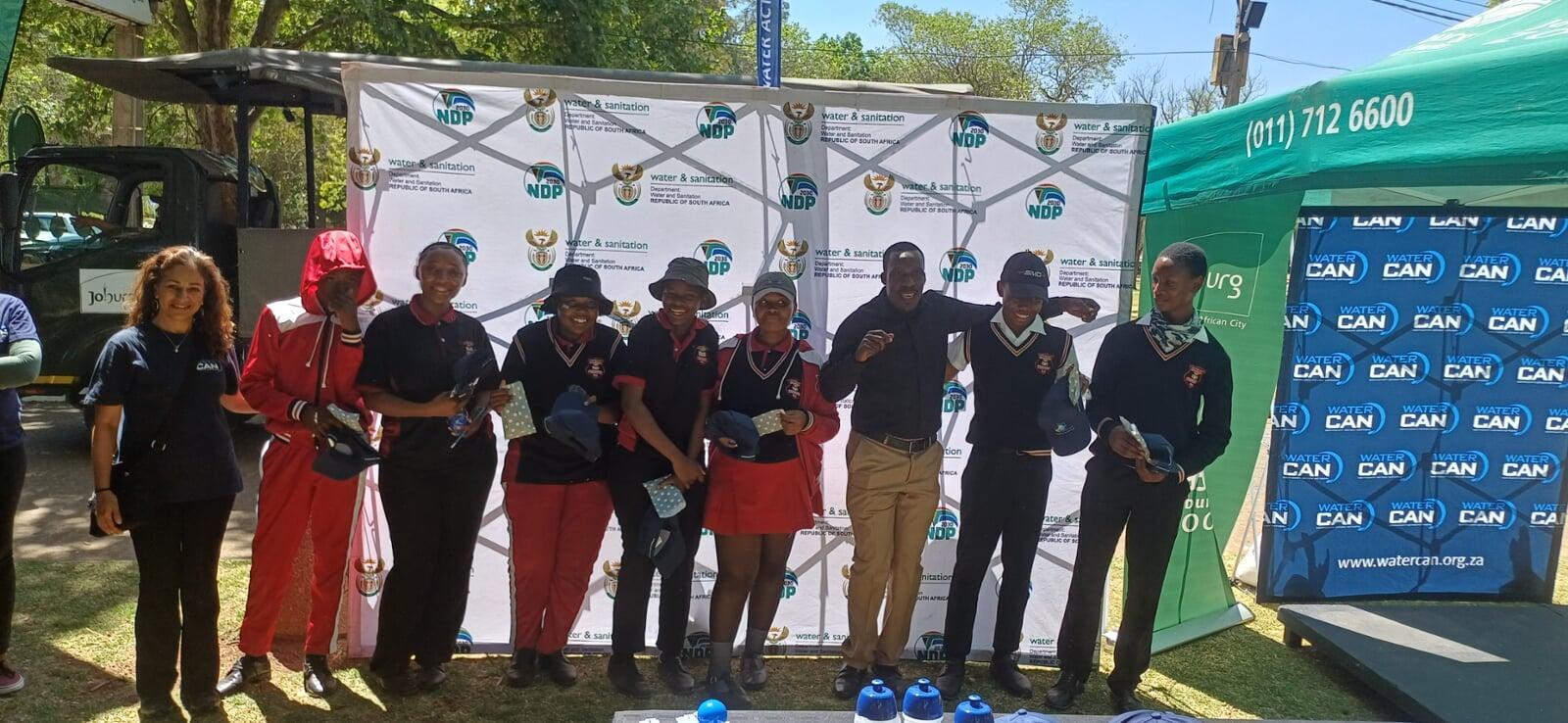
Op-Ed by Nhlanhla Sibisi - WaterCAN Campaigns Coordinator and Nomsa Daele - WaterCAN Senior Team Leader.
WaterCAN, with partner organisations, celebrated its 4th Annual Citizen Science Water Testing Week at the Johannesburg Zoo - covering the week of 15-19 September 2025. The launch was held on 18 September 2025 in collaboration with the Joburg City Parks & Zoo, also coinciding with the World Water Monitoring Day. World Water Mentoring Day reminds us of how essential water is as a resource and the need to test our water quality ensuring that water is safe for consumption.
The launch involved water testing with learners from Diepsloot Secondary School which turned out to be a fun activity for the youngsters yet educationally rewarding. These young minds learned how to test water quality as well as sharing their respective lived experiences as community members of Diepsloot.
The Annual Citizen Science Water Testing Week came in the backdrop of the looming water crisis experienced by various communities in the greater Johannesburg area, namely, Coronationville, Westbury, Westdene, Ebony Park and Ivory Park, to name but a few. These are communities that bear the brunt of water shortages resulting from failing infrastructure, poor water quality and governance failure that ensures equitable distribution of water to residents. Communities continue to demand clean, reliable water for all residents in the respective communities. Taking to the streets, we heard how communities are impacted by water scarcity as they related their lived-experiences.
Testing the water quality on the day gave the Diepsloot Secondary School learners the opportunity to apply this skill, through citizen science, back to their community and be water custodians. The curiosity displayed by the grade 9 learners enhanced the interaction as it gave them the opportunity to learn as well as share their aspirations of safeguarding our scarce water resources through science and commitment. The learners were able to further reflect on what it means when we say “water is life”. Sharing their own experiences, they were able to reflect on how their individual and family lives are disrupted when there is no water coming through the taps. These translated into missing school time, having no water to drink, wash and cook also leading to the loss of dignity.
WaterCAN continues to interact with schools and affected communities to provide water testing kits for free as well as work closely with communities to empower, co-create and share ideas on how best to hold authorities accountable. Communities also continue to demand water justice that is equitable and reliable across the country, justice that also brings dignity for all residents as enshrined in the constitution.
Partnerships such as those forged with Joburg City Parks and Zoo have proven empowering to communities in various ways. Through awareness and education we are able to reach out to schools and other like-minded stakeholders to empower and share citizen science knowledge to test water quality and share results.
Beyond the testing exercise, the involvement of multiple stakeholders added great value to the day. Learners were able to visit stalls hosted by the Department of Water and Sanitation, Rand Water, UJ PEETS (who facilitated the MiniSASS activity), and several other partners who each demonstrated the critical importance of water in different ways. These interactions highlighted that water governance, quality assurance, and conservation require collaboration between government, academia, civil society, and communities themselves.
These interactions not only reinforced the value of water but also gave the learners a broader understanding of the network of organisations working to safeguard our resources. To cap it off, the learners took part in a fun and interactive quiz which tested their knowledge and encouraged them to think critically about what they had learned throughout the day. The combination of hands-on testing, engaging exhibitions, and knowledge-sharing created a holistic experience — one that celebrated water, highlighted the urgency of the water crisis, and empowered young people to see themselves as active custodians of our most precious resource.

